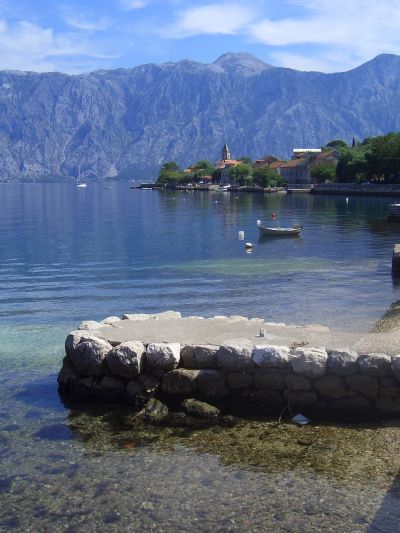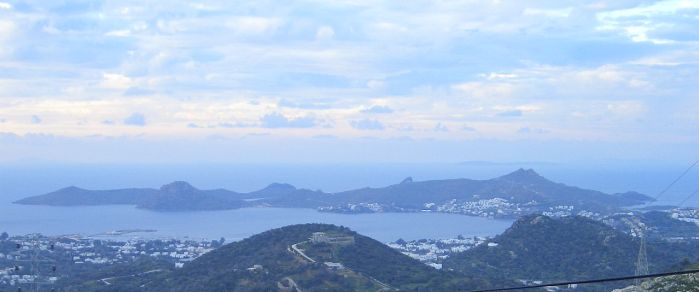
Stoliv Montenegro, my favourite place in the country. But now relatively quite expensive and probably difficult to get property. More pics through Stoliv, Montenegro.
Having attained a degree in economics and
while traveling around Europe, I
feel I am in a good position to help others find property investment ideas in
Europe. When I first came to
Prague shortly following the collapse of the Berlin
wall, I developed what I liked to called the rubber band theory.
|
Stoliv Montenegro, my favourite place in the country. But now relatively quite expensive and probably difficult to get property. More pics through Stoliv, Montenegro. |
Between the world wars, the Czech Republic was the sixth most industrialised nation in the world, which is saying quite a bit for a country with a mere population of 10 million (less than the population of New York, which is the 17th largest economy in the world). The Czech Republic is strategically placed in the centre of Europe, nestled on the border of Germany, Austria, Poland, Hungary and Slovakia. The reason why the Czechs did so well before the communist invasion is because they are hard working and have ingenuity. These ingredients alone should guarantee the country a return to wealth equal or similar to its rich western neighbours. But with the invasion of the communists, the country's industrial base was essentially stolen to fulfill the military agenda of the Russian. Capitalist incentives were denied, the economy suffered, until it reached the level prior to the collapse of the Berlin wall where the Czechs made the saying (to the Russians), "You pretend to pay us, and we will pretend to work". Which I believe is one of the main reasons the communist regime collapsed in the first place. Sure, Reagan beefed up military spending beyond what the Russians could dream of paying and as such brought them to their knees (although it is obvious to me that the communists were certainly not brought to their knees. They calculated that it was within their interest to accept capitalism, and were in a unique position to profit from it, since they controlled the bureaucracy. Many of the wealthy in these post communist countries are in fact the communists themselves), but he could not have done so without the economic weakness of the Russians. And they were economically weaker because their population did not have motivation to work harder, because there was not capitalist incentive, and because the organisation was plagued by bureaucracy and the poor central planning that can only result from such a system. |
So the
Czech Republic's economy was drowned under a blanket of bureaucracy and
inefficiency, and its resources drained to feed the bottomless pit of Russia's
industrial stomach. The Czechs had no incentive to work either, but take away
the Berlin wall and allow once again the incentives offered by capitalism, it
was logically inevitable that the country could only go upwards. Hence the
rubber band theory. The inefficiency of the communist system and ideal is the
thumb holding down the rubber band, from where the country should naturally be,
considering its hard working, intelligent and well educated population, and its
geographic proximity in Europe.
Well, 14 years after I first uttered this theory, the Czech Republic...
<

Big lake interior of
Montenegro near to capital. Should be lots of available and less expensive land
here.
More pictures of this area in
Montenegro.
And I see the same opportunities as I travel my jolly way around Europe. Always looking for the perfect place to park, with a nice view and in nature, studying the history and culture about these countries when I travel through them, and getting to know their mentality a bit when I nurse yet another pint of beer in good company, it is inevitable that I would stumble on good property investment ideas.
|
|
This page is just an introduction and I will break my
suggestions according to country, the links of which you should find below. I
started my travels in July of 2006, and I have other work to do than constantly
nurse these websites, but you can expect me to update this information over
time, and over my travels. If you are abroad or don't have the time and would like me to check out something things or do some legwork for you, I'd be glad if you pitched in for gas money, or we can work out some agreement. I already have a successful translation agency and business, so I am not looking at this as a means of primary income, but as you can imagine, time is money and I've got plenty of things I want to accomplish for myself, so if you want me to do any special researching or negotiating for you, you will need to make some modest payment up front. And if I do happen to be instrumental in closing some deal for you, I hope you do not forget me and give me some fair cut. Because, after all, I am a capitalist and successful business person. I am also keenly interested in charity, but I do not consider helping others buy property a charitable cause. You will find some pics of the Yalikavak area on my caravan survival tips page, traveling to Bodrum, Turkey page and the Yalikavak, Turkey photo gallery page. |
From what I have traveled so far, I'd say Montenegro and Bulgaria are good bets. Croatia is already pretty well developed, and they recently developed their highway to the Montenegrin border, as such making that latter country much more accessible to tourist traffic. This has led to unbelievable hikes in their property prices, and I'd say that that boat has almost already been missed. The whole way along the coast is spotted with one flouring tourist town after another, some so far that I find them unappealing, but considering the country has been held back so much due to the embargoes and its inaccessibility to tourists, good investment opportunities should still be found. Especially in the interior, where there is a big lake half shared with Albania and where the nature is quite beautiful too. From what I've seen and picked up from locals, I would not try to buy an already developed property, as anyone who has lived on it or has historical roots to it will probably try to overcharge for sentimental reasons. Rather, you should get undeveloped property and develop it yourself, for the labour and material is cheap, especially if you look in the interior, or to Serbia, for it. My favourite coastal region is around Stoliv, because it is unadulterated, has a beautiful coastline, and you get to stare at the mountains across the bay. The life is relaxed as well and it is not a horrid tourist trap like Budva.

Bulgaria has its beautiful coast and I hope
to scope it out during the summer of 2007, the last time I visited there around
the year 2000. I imagine Romania could be a
good investment too, as both Rumania and Bulgaria are set to enter Europe at the
start of 2007.
But from what I've seen so far, Turkey looks like a good place to invest. It feels on the cusp of entering Europe, and its population seems rather eager to make it happen, hearing about its progress towards that goal every day on the radio. But be careful who you buy from, as there are a lot of crooks who are willing to sell you falsified documents. Not to mention that the military has a strong hold on property, having the last say whether someone can develop on their own or property adjacent to theirs, which covers a large area. In many areas the local town councils bowed to investor pressure and handed out construction permits without the military's approval, and are now being chased by them. But once again we have the rubber band theory. It should only be time before Turkey gets into Europe, and as that approaches, the time will certainly come when the military will be forced to lose its grip on property development, after which you can expect the funds to pour in in ever greater magnitude. For this reason I would see a good 5 to 10 year investment opportunity as some of the undeveloped coastline around the southwestern part of the country. Within easy view of many Greek islands, so once Turkey does get into Europe, I would expect tourist traffic to flourish even more in this region. The lower prices would certainly warrant it, and the weather is as nice as Cyprus and Crete. Check the Yalikavak links above where I was mostly parked. Look at the endless undeveloped coastline and beautiful development opportunity. And this is only about 3km from Yalikavak, on the Bodrum peninsula. I'd say the entire peninsula is nice, but this part here is pretty relaxed and not touristy, and has a significant English speaking population.
I've also spent about 4 months in Turkish Northern Cyprus and I'd wager it could be a good place to buy property now. Looks like the two halves did not come to an agreement again (September 6, 2007), which actually pissed off the British government who said it will stop sending tourists here, which I think could keep property prices down, or lower them. On the north side the beaches are all sandy and apparently much better than the shoreline on the southern side, which I visited a few times and found pretty rocky in places. Along the beach I find a lot of elderly British folks and I've heard that a lot of them have bought property here, so it cannot be so risky as one might think. There are several English speaking radio stations here, so apparently there must be a large enough English speaking population here to support that. I think that it will only be time when the two halves come to an agreement, after which the embargo should be lifted and the property prices would have to go nuts. So I think it could be a good "shorter" term investment. The temperature and its location in the Mediterranean is certainly a good place to own property. You can check out my pics and other info about Northern Cyprus.
Well, that's my two cents so far!
Partner Links:
Auch für Sie kann ein
Übersetzer französisch hilfreich sein
Suchen Sie einen Sprachkurs?